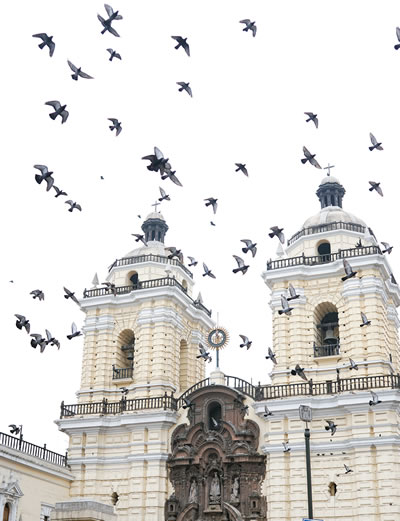
In early October 2021, Pope Francis formally opened the synod process at the Vatican with the theme: “For a Synodal Church: Communion, Participation, and Mission,” that calls for full participation of members of the Church and gives voice to people, especially those in the margins of our society in critical discussions on issues that impact the life and mission of the Church. With the changes made with the whole process of this synod, Pope Francis invites us to seriously reflect on what the path of synodality looks like for us in our own communities. Following is my personal reflection on synodality, shared during a workshop on synodality among fellow Columban missionaries.
I’d like to begin by sharing my background and a bit of my personal history to give you a context for my personal reflection on synodality. I joined the Columban Lay Missionaries (CLM) in 2005. My first mission assignment was in Taiwan, and my ministry was in the field of HIV and AIDS. I journeyed for six years with people living with and affected by this illness, who were residing in shelters run by a local non-profit organization. Afterwards, I worked in the HIV and AIDS education and outreach ministry in the diocese, aimed at engaging the local Church in responding to the realities of HIV and AIDS. Along the way, I also served in leadership ministry in our mission unit and in the Columban lay mission program.
My encounters with people of different backgrounds, cultures and faiths, have deepened my understanding of what St. Paul meant when he described the Christian community as “one body with many members, so it is with Christ. We are the body of Christ, and individually members of it.” These words have greatly influenced how I live and work as a missionary. My experiences on mission have truly been a blessing, because, until I met the Columbans, I had not fully understood my baptismal call to live out God’s mission as a follower of Christ.
Even though I was raised a Catholic, which has imbued my way of life with Christian values, traditions and practices, I grew up treating the Church as a place where I can go to get my spiritual needs met, a place where I can expect people of authority, mostly priests, to provide certain services. At a young age, I also learned not to ask questions about the Bible or about religious practices or traditions. I grew up feeling it was my place to just receive what was offered by the Church, to fulfill my obligations, and not to question or challenge matters related to the Church. These were some of the things ingrained in me that I unconsciously accepted in living out my Catholic faith.
In saying this, I also recognize that many of my faith experiences were necessary for my spiritual growth as a child and on into my youth. But later, as I grew into adulthood, the comfort of the familiar and the convenient role of a passive recipient member of the Church stagnated my spiritual growth and limited my participation in the life of the Church.
I believe the Holy Spirit was guiding me in my journey growing up. And, I am grateful because God led me to discover the Columban missionaries. Cross-cultural mission has allowed me to grow in my faith and enabled me to own my identity as a member of the Christian community, as well as to understand that the Church is much more than a place to get spiritual services or replenishment for the laity.
With the Pope’s decision to move towards a synodal renewal of the Church, the message is clear that “the whole People of God is an agent of the proclamation of the Gospel… every baptized person is called to be a protagonist of mission since we are all missionary disciples.”
We need to create conditions that enable people to recognize and respond to their baptismal call and allow them to own their role as “protagonists” – the principal and active participants in mission. We need to commit to facilitating and guiding people in their journey until individuals are able to truly find their voice in the life and mission of the Church.
 When I arrived in Taiwan, I recognized how structures in our mission unit invite members, lay and ordained, to live out the values that reinforce and inform the life of the Columbans, that is, a full participation that fosters partnership and shared responsibility and accountability among ourselves. I realized that I had to make a choice to let go of my past conditioning that influenced my dynamics with the ordained and my view of my role as a lay woman in our community. It was not easy, but I gradually understood that my opinions and my contributions, limited as they were, would be received and respected by other members.
When I arrived in Taiwan, I recognized how structures in our mission unit invite members, lay and ordained, to live out the values that reinforce and inform the life of the Columbans, that is, a full participation that fosters partnership and shared responsibility and accountability among ourselves. I realized that I had to make a choice to let go of my past conditioning that influenced my dynamics with the ordained and my view of my role as a lay woman in our community. It was not easy, but I gradually understood that my opinions and my contributions, limited as they were, would be received and respected by other members.
Over the years, the encouragement from fellow missionaries allowed us to have the confidence and courage to contribute in discussions, take initiatives and accept responsibilities. Of course, with our diverse cultures, personalities, and personal histories, it is to be expected that we have experienced resistance, tension and conflict. And, although we would rather avoid all these, I believe that they are part of our reality, and overcoming them is a necessary part of our growth individually and as a community.
What I learned from our way of working together naturally became tools in my ministry, guiding me in how to work with others who come from different backgrounds. I had to open myself up to the opinions and realities of others, which in turn allowed me to re-imagine ways of doing things; and opened up new opportunities to learn from the wisdom and experience of others so that we can discover new ways together to develop this ministry.
With God’s grace and faithfulness, environments or conditions such as I have experienced can bring about an awakening in a member of the community, leading to a deeper understanding of one’s calling and a sense of ownership of our shared responsibilities in the community. If we see ourselves as facilitators for others, we can bring people together, open opportunities to learn from one another and be enriched by our encounters of different cultures and experiences. This can bring about new possibilities for mission. We need to be creatively and faithfully responsive to the changes brought forth by our journey together, especially when these changes lead us closer to people in the peripheries amidst these challenging and uncertain times.
Synodality also calls us to address clericalism and exclusion in the Church. From what I have witnessed and learned in my ministry about confronting stigma and discrimination, behavioral and attitudinal change in how we view and relate with one another is just as critical as finding a cure that would end HIV and the realities brought about by this illness.
The same sort of thing is true for the Church. It is vital that we honestly examine negative or false narratives, religious and cultural misconceptions or taboos, and any other structural or ideological components of the Church that perpetuate clericalism or justify acts of exclusion.
Only when we are aware of these attitudes and behaviors, and take steps to counteract them, can we ensure that we are not blocked from responding to, and relating with, people around us. Then, we can be catalysts of change for inclusion and diversity, bring healing in the Church, and truly move forward in the spirit of communion with one another and with God.
It was my encounters and friendships with people who have been rejected, isolated and excluded that taught me the meaning of witnessing to the truth that every person has innate value and dignity, that all people are equally and fully loved by God. This has become the measuring stick for my behavior and attitudes. It guides me in my relationships and challenges me to grow as a Christian.
May the Holy Spirit guide us in our ongoing commitment to welcome others to share in God’s mission as disciples of Christ.
Columban lay missionary Jao Resari lives and works in Taiwan.